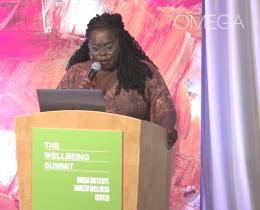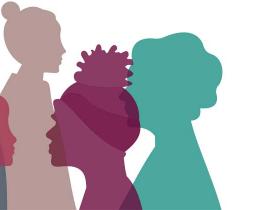Omega: Why are you speaking about spirituality and activism now?
Skip: Because we are at a critical junction point and there is a sense of cultural awareness happening now that we can take advantage of.
I think one of the most important ways to deal with climate change or any issue—whether it is systemic racism, #MeToo, wage inequality, etc.—is to understand the concept of spirit and the interconnected reality that comes from knowing each other. That connection provides critical information that can inform our decisions and actions.
I think it’s important to activate people—and not necessarily in the way you may define activism. But you want to bring awareness to people of where we are so that in their unique being, they can find their place.
Because we need people awake now.
Omega: How do you define spirituality?
Skip: I think spirituality is a connecting energy—something outside of definition in consciousness that is the underlying core, connective energy of everything. In every single religion, they give a name to that energy.
My personal preference is acknowledging there is a universal force, or energy, that connects us all, that is the vibrant essence of all life. It’s something that is an experience, as opposed to an intellectual understanding.
Omega: How do you see spirituality informing activism?
Skip: Having a sense of spirit and connectivity means that I have a relationship to you, regardless of whether I know you or not. At that point, I have many choices. I have a choice to act, not to act, or to act in different ways. By understanding a sense of that connectivity, the likelihood of me acting in an inappropriate way is reduced because I am actually going to harm myself.
When I go into a store, I am aware whether there is somebody a few steps behind me. So I have an opportunity to hold the door for that person behind me. That is just as much a gift to me, holding the door, as it is for the person who is going to walk through it. It sets me up with the idea that I am not alone. I am part of what is happening. The various gifts from that one singular action can inform my entire day.
A lot of the time activism can be seen as a very high intensity action—somebody yelling, a march happening. And that is good and needed. There is also a type of activism that is much more about how you are being, how you walk in your everyday life.
Omega: Is it enough just to be a good person, or does activism require one to be engaged in a cause?
Skip: I think I’ll just take a world filled with good human beings—if a good human being is defined as someone who is conscious of their impact. Being a good human being is actually being an activist because you are making decisions about how you are. You are making them in such a way that there is an awareness and a consciousness of others and our interdependent relationships.
Being a good human being is actually being an activist. —Robert "Skip" Backus
Omega: How do you respond to those who say that is not enough?
Skip: There is such a wide range of awareness and personality that you have to be able to honor everybody’s place in the spectrum of engagement. While we need people to be engaged in looking at systems and working to change the ground rules, there can’t be judgment. We are dealing with so much of that already. There are so many judgments across the spectrum of who is not doing what, who is doing this, who is doing that.
I think it is so hard to lead a good life these days. I will take my hat off to anybody who is leading a good life.
It’s very difficult, given the number of decisions that you can make every day. You can make yourself crazy. I'm a little obsessed with the whole thing. For instance, I am looking at what I shave with so that I am not throwing away countless shaving cream cans. Maybe I should just use soap. There are a 1,000 of those considerations every day.
I have a 35-minute commute. I see people who yield the road when they are harassed by tailgaters. I think that’s such a great statement. To be able to yield and not participate in that game is a way to diffuse the impatience and anger of the tailgater.
Anybody who can pull off being a good human being these days, I’m all about shaking their hand and saying thank you very much. And it’s foundational to change. I think of Malcolm Gladwell’s book, The Tipping Point. If you have a certain percentage of people living good lives, that’s how change happens.
Fighting for a better world does not mean you have to be out there pounding the beat. It can simply mean that you are personally responsible.
Omega: How do you define personally responsible?
Skip: It means understanding my place, my role, and my impact. It means examining how I lead my life while understanding that I have a personal contribution to the culture, both potentially positive and negative.
How am I in my relationships? How do I conduct myself in the social paradigm? How am I in my environmental commitments? How do I show up for advocating for systems change, whether it’s a family system, a workplace, a company, or a country?
It also means understanding my own evolution in those areas so that I am evolving and progressing as the culture is evolving and progressing.
Omega: Spirituality is most often experienced as an expression of faith. What does faith mean to you?
Skip: I was brought up a Methodist, but I am not a particularly religious person. I think of myself as somebody who is connected to spirit and is spiritual in that sense. As part of that, I surrender to a mystery that I know I will never understand.
When you add in some of the experiences that I've had that speak to the unexplainable mystery, that mystery becomes part of understanding spirit and gives me a sense that there is a continuum. So I put myself in the flow of that continuum. And that is faith.



